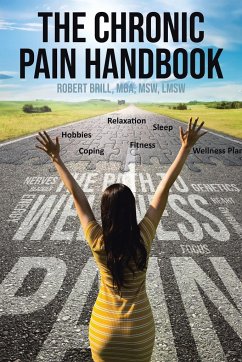This book is the third in a series that focuses on teaching those with chronic pain conditions to self-manage their condition by learning the complicated process of partnering with their illness. The most important aspect of self-management with any chronic illness is acceptance and attitude because a cure is almost always unrealistic. Acceptance is the first step on the journey to wellness and helps one learn to stop being a victim to their illness and to enhance the skills necessary to achieve wellness such as effective coping, increasing resilience, and the use of positive psychology interventions. Acceptance involves coming to terms with your illness and accepting it in full followed by adjusting your attitude in the face of chronic symptoms, making you a champion of your condition. It is my belief that many illnesses that have a chronic pain component are the end result of a genetic predisposition combined with an environmental trigger and further exacerbated by our lifestyle. This trigger may come in many forms commonly reported as a trauma; exposure to toxins, bacteria, and viruses; and long-term emotional distress but may also be present from poor lifestyle choices such as a lifetime of poor diet, the lack of exercise, and too much stress-things we can manage ourselves but often fail to do so. There remains a burgeoning interest in how the psychology controls the biology, including our positive affect and our resilience. Ergo, we can't cure chronic illness, so we learn to partner with it. The reality is that with chronic pain conditions, we the patient have to learn to manage our chronic illness to the best of our ability using Western medicine as an adjunct, and this involves the use of positive psychology and complementary and alternative medicine interventions. We stop asking questions we are likely not to find the answers to and we accept that the cure then lies in our ability to champion our wellness and reverse many of our symptoms. This book takes you through the evolution of illness to wellness-from the beginning of dealing with a complicated and disabling force to the many steps of acceptance, coping, nutrition, exercise, loss, the psychology of chronic illness, and finding hope when there is none. Chronic illness does not have to translate into a poor quality of life if you don't let it. Beyond that, the goal is to learn to live life with disease.
Hinweis: Dieser Artikel kann nur an eine deutsche Lieferadresse ausgeliefert werden.
Hinweis: Dieser Artikel kann nur an eine deutsche Lieferadresse ausgeliefert werden.








